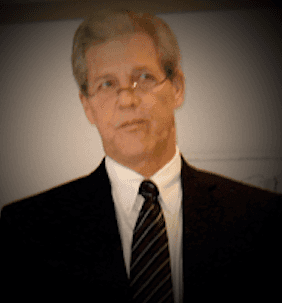Why another blog?
There are already 300 million of them
ReCent Posts

The ‘wisdom’ tells us there are 3 stages of retirement: go-go, slow-go and no-go. I hadn’t given much thought to transiting to the second stage as I was too busy in the go-go stage. Besides, other than a brief episode of atrial fibrillation, I was physically unrestricted. I wasn’t happy about weighing 20 pounds more than when I retired but was working at it and I hadn’t been sick and kept up the recommended booster shots against ‘flu and Covid. Nothing had changed and aging was just a number. I vaguely thought that I would ease into the next stage sometime in the future, like a controlled motion down a gently inclined ramp until you reach the point where an activity seems too much effort. You are now a go-slow. I have since learned that the gentle ramp is more like a set of stairs and some of the steps have deep drops. It began as a free-fall, suddenly, with a viral bronchitis which made breathing difficult unless I continually coughed. In 6 weeks it had progressed to edema of my legs secondary to congestive heart failure and oral diuretics were not much use in controlling the edema. This caused profound shortness of breath with any muscular movement. Additionally, the edema was such a degree that any movement such as getting into a car was a struggle because my knees were so tight with edema they wouldn’t bend enough to get in a car. Extensive work up showed all the usual suspects were working well: heart, kidneys and liver. However, your heart is surrounded by the pericardial sac; this holds the heart and attaches the heart to the upper rib cage. Ultrasound showed that here was fluid inside the sac that compressed my heart to a degree that the heart could no longer fill with enough blood for my needs. My heart was getting shrink wrapped. This resulted in a procedure using a hook to tear a hole in the sac to let the fluid out, but it was minimal help. It had now been present for 4 months and as the edema progressed the shortness of breath got worse. Hospital admission for maximal treatment of my edema was successful enough that they decided that they would open my chest and cut a window from the pericardium. The relief of my shortness of breath was notable from the first post op day. I lost the 40 pounds of edema, but all the lying around in bed had resulted in loss of muscle mass and my weight now is the same as in high school. So far it has been 9 months of improvement in strength and endurance. Mentally, I was fine and scoured the internet for various subjects like AI and the projected/unexpected consequences, thoughts on rebuilding the destruction of Palestinian Gaza, and annoying the Moldovan university student I am sponsoring with financial realities. I am also minimalizing my life by purging things I haven’t used or thought of for 10 years. I have since learned this is called ‘Swedish death cleaning’. What have I learned as I enter what I hope will be a long go-slow period? The go-go years can end abruptly so do not postpone any physical interests because you have “plenty of time”. Remain curious and act on those interests: take up mountain climbing, martial arts or whatever.

I must walk around with a scowl on my face because I am frequently asked if I am “Happy”. My understanding of happy is there is a lifetime happiness curve, U shaped, with the bottom at 50 yo and peaks at 23 and 69. But after 69 it doesn’t point straight down as there is an almost horizontal line on the right. Also, there is a genetic predisposition to happiness with 30 - 40% of a population finding it is easier to be happy. The rest is environmental influences such as traffic delays, winning the lottery and such. So happiness comes and goes daily but contentment levels out the highs of a birthday cake and the lows of a traffic ticket. So I gave some thought to a Contentment Index. I think this needs to be weighted because some points influence the others. 1. Financial. (50%) This is the big one; the foundation of successful retirement and all the points that follow. This subject is so important that most of the megabytes of retirement advice are about finances. Financial independence allows the individual the freedom to be in total control of what you want to do each day. Keep monitoring your finances and live within your means. 2. Health. (25%) A retiree should shift their focus from wealth to health; take up nutrition courses, cooking classes and such. Keep a regular schedule of physical activity and keep your annual physical appointments. 3. Social connections and new relationships (10%) The office camaraderie is gone and there will be a need to find others with similar interests. Accept that the social group will change every 5 years as people move on. 4. Where you live (5%) Will moving change your support system of friends and relatives? Is scaling back going to effect large family gatherings? 5. Brain stimulation. (5%) “Curiosity may have killed the cat, but a lack of curiosity kills the happy retiree”. 6. Adaptability. (5%) There are 3 stages in retirement: go-go , slow-go, and no-go. So …. how am I doing? 1. Financially I am doing well and only spend money on things with the potential of improving friendships. Floating in a large boat by yourself is not fun. 2. My health remains good but I still eat preserved foods, drink wine and participate in other assorted sins. I go to the gym at least every second day. 3. Socially, I am gravitating to younger, upbeat, and mentally stable friends. I am avoiding the grumbling, the narcissistic, and the irresponsible. I am saving myself time, because one strike and you’re ignored. There is someone who calls every week to make sure I am not dead and composting somewhere. This person is also a sounding board who makes sure that I stay fairly main stream in my thinking, as long as we avoid certain subjects. 4. Location. In my travels, have not found anywhere better … yet. 5. Stimulation: I am slowly progressing in learning the Russian language and find the treadmill an excellent place to do my homework; in spite of others in the gym wondering about this strange old guy talking to himself. I also have the wherewithal to try new experiences out of my comfort zone. 5. Adaptability. I am in the first stage. I do have plans but they are not rigid as I am working through the alternatives for the next 2 stages. So, how am I doing? I’m deliriously content.





